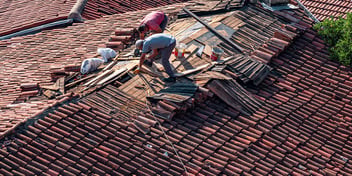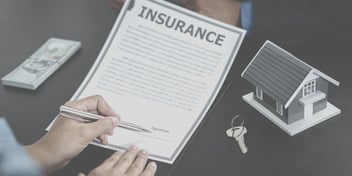- Home »
- Learningcenter »
- Roof insurance premiums florida
Does Roof Choice Change Insurance Premiums in Florida?
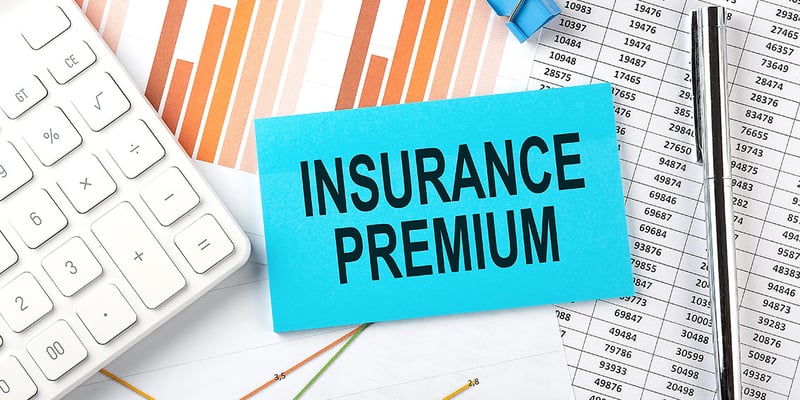
So you're curious about the "Roof Factor" and how it matters in Florida home insurance, right? The kind of roof you choose can really change what you pay for insurance.
I'm going to break down how your roof type and your insurance costs are related, and I'll keep it sharp and simple. My goal is to give you Floridian homeowners ammo to deal with insurance costs better, specifically based on the type of roof you have.
Did you know your roof choice can play a big part in your insurance cash outflow? I'll dig into some hidden features and show the tie between smart money moves and being an effective homeowner. Anyway, enough chatter - let's talk about this!
Factor #1: Roof's Age
Does the age of your roof play a big part in your insurance? You bet it does! If you're in the Sunshine State, insurance firms - the ones based in Florida - take a close look at your roof's age when they crunch the numbers for your rates. Older roofs can be riskier because, over time, they start to wear down and can't handle bad weather as well. Getting full coverage for roofs older than 20 years can turn into a real headache.
So, why that 20-year age limit? It's the sweet spot. See, in Florida homes, common roofing materials like asphalt shingles usually last around 20 years.
Insurance guys don't just randomly choose this thing. They look at your roof, literally! If your roof is over 20 years old but is in great shape, some insurance companies might still give you full coverage. On the flip side, if your roof isn't even 20 years old but looks like it's seen better days, they might not give you full coverage. They think it's a high risk. That's why having your roof inspected is so important - it helps the insurance company know how much of a risk your roof is.
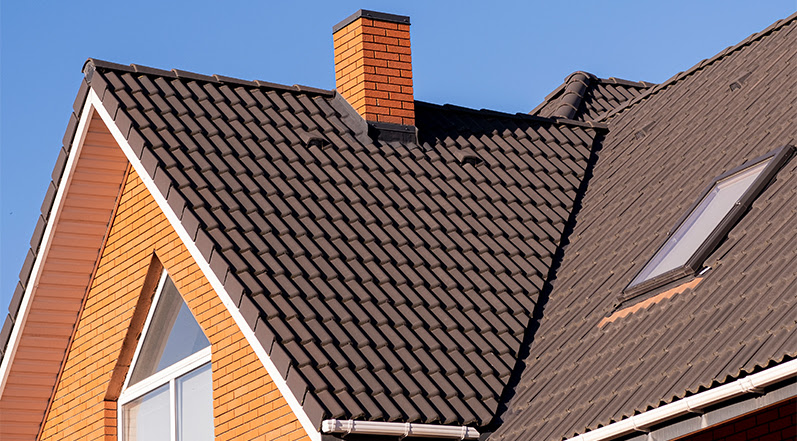
This has many uses beyond insurance companies. Quality bodies like the Insurance Institute for Business and Home Safety conducted a lot of studies. They found that older roofs cause more insurance claims compared to newer ones. That's the cold, hard facts for you!
Making a choice about your roofing just makes it a whole lot easier! Keep in mind that fewer potential claims help both the insurers and you - by cutting down on the stress and hassle. That's why keeping your roof in great condition, no matter how old it is, is so important.
Here's where I give you my final two cents - the age of your roof definitely matters when it comes to insurance premiums, but its condition is just as important. A well-kept older roof might actually do better than a newer but neglected one. So, regular inspections and maintenance? Absolutely important! At the end of the day, an impressive roof reduces potential insurance claims - it keeps your home safe and comfy!
Factor #2: Roofing Materials
Let's take a closer look at how the type of roof you have can have an effect on your insurance premium. Specifically, insurance companies seem to have taken a liking to metal roofs. Florida's intense features - blazing sun and pouring rain - aren't a problem for metal roofs. Roofs made from materials like copper, tin, or alloy increase the protection and can last between 40 and 70 years. Isn't that cool? That's way longer than many other types of roofs. It's no wonder insurance companies and homeowners like them.
There's something else about metal roofs that makes them stand out - they're really tough. They can stand up against fire and heavy winds, which means fewer insurance claims. As a result, many homeowners get insurance discounts - now that's a win-win.
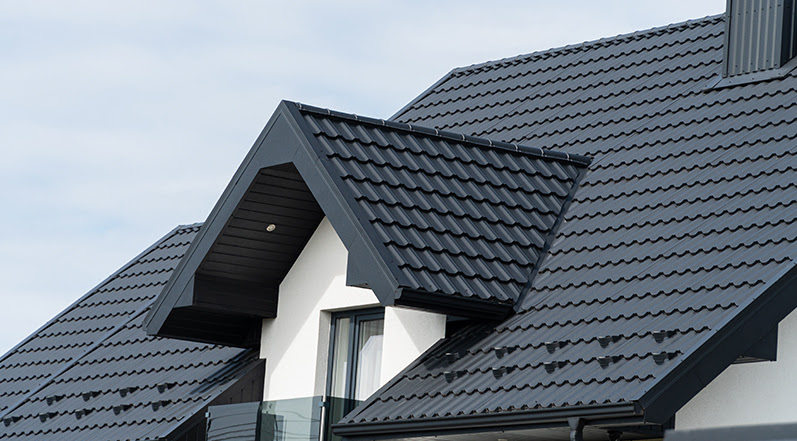
Let's think about a case study completed by the Insurance Institute for Business & Home Safety. They put metal roofs to the test under fake storm conditions, along with different types of roofing materials. The results? Metal roofs came out tops. They appeared far less likely to get damaged and had fewer insurance claims. That suggests that metal roofs could lead to lower insurance costs for homeowners.
On top of their rugged build, metal roofs get a lot of kudos for keeping our homes cool. They bounce off solar heat, helping to shave off between 10% and 25% from cooling costs in Florida's sizzling climate. This energy-saving benefit, together with their really long lifespan, makes metal roofs a hit with the insurance companies.
But remember those other pieces in the puzzle that can sway your insurance cost. The age of your roof, how well it was installed, and how often it gets maintained can all make a difference. Local building codes and the risk factors in your area can also shift your final premium. The benefits of metal roofs are clear, but they're just one part of the bigger picture when it comes to figuring out insurance premiums. That said, You should know the potential for lower premiums. Also, the bonus of having a strong, long-lasting roof should definitely be part of a homeowner's evaluation process.
Factor #3: Roof Shape
Your roof's shape really does change your insurance rates in Florida. Hip roofs are a popular pick - these are roofs with better wind resistance. Insurers tend to really love them because it makes for better premium rates.
It all comes down to how well your house can stand up to, well, scary weather. Like those tropical cyclones and hurricanes we have in Florida all the time. The sturdiness of your roof really affects how much risk your insurer has to take on.
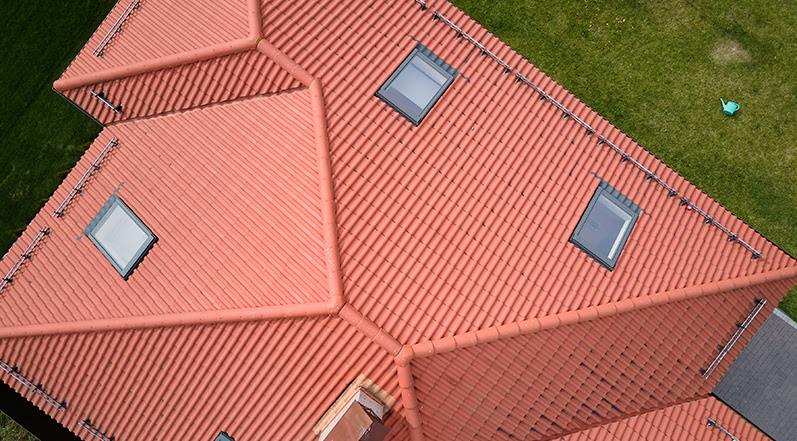
Let's talk about specifics. This hip roof I keep talking about - it has four sides that slope down. You may not have believed it, but this design cuts down on how much wind hits the roof. That means less wind lift (bye-bye roof) and fewer future headaches. Studies by the Insurance Institute for Business & Home Safety found that damage from wind drops over 50% with hip roofs.
On the other hand, there are gable roofs with two slopes. These aren't so good during a storm - strong winds could tear them apart. Flat roofs are in the same boat. Their design just isn't wind-ready, which means you'll have to keep fixing them. And that'll cost you both in repair bills and insurance premiums.
But wait!! The shape of your roof isn't the only thing that will affect your rates. Still, it seems pretty clear that hip roofs are a good bet for cheaper insurance over time. Alright, here's a question for you: Thinking about the best roof design for your Florida property? I mean the one that could save you big on insurance. Choosing a lower-risk roof like a hip one could cost you less on premiums. Also, it might give you more peace of mind when the weather report is looking a bit grim. Who doesn't like less stress?
Factor #4: Wind Mitigation Discounts
Know what plays a big part in picking a roof for your home? Wind mitigation features. Why, you ask? Florida law says homes with features like roof-to-wall attachments can score steep insurance discounts. Now that's a win-win, right? You get extra security when rough weather rolls in and your insurance bill dips down.
Check this out: facts from the Florida Office of Insurance Regulation show homeowners can slash their insurance rates by 45% max if their homes are decked out with wind mitigation features. That's a steep chunk of change to keep in your pocket.
So this inspires residents to fit their homes with wind-resistant features. Things like strong roof coverings, storm shutters, and sturdy roof-to-wall links. Upgrading that bond between your roof and walls? It slashes the odds of your roof taking flight during a windstorm.
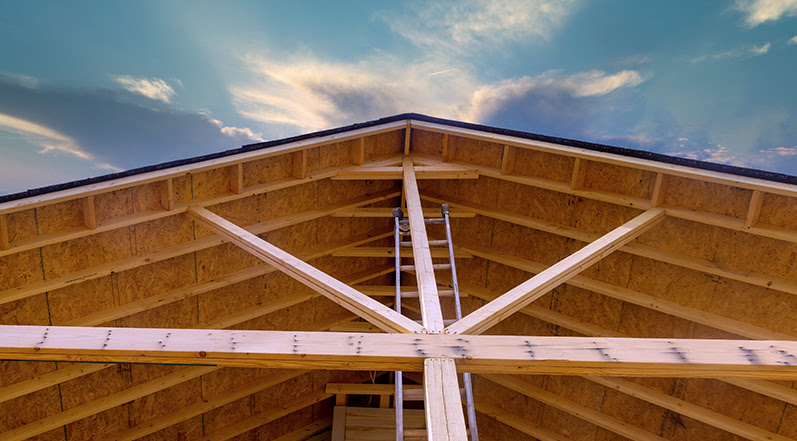
Post-storm, insurance guys will stop by to take stock of the damage. They'll inspect those roof-to-wall connectors with a fine-tooth comb. Homes passing the test stand to nab wind mitigation discounts. That means more sweet cuts in insurance fees.
Get this: there's no cap on these Florida-based insurance discounts. If your home is packed with wind mitigation features, you can expect stacks of savings.
Thinking lower insurance bills might lead you to think about installing a roof built to outsmart the wind. Those wind mitigation features don't just clamp down on wind damage - they're a quick way to save on insurance. You'll find the benefits zoom past the upfront costs. Shelling out some extra change for a high-quality roofing system gets you two boons: physical safety and financial security. In my book, it's a fantastic move.
Factor #5: Maintenance
How much do regular roof inspections change insurance premiums? They change them a lot, believe it or not. Homeowners who keep up with roof maintenance regularly often get a nice discount on premiums from their insurance companies. These guys just want to steer clear of potential damage that could lead to insurance claims.
When it comes to handling rough weather, a roof in good condition is tougher - it can hold up better. Steven Weisbart, insurance consultant extraordinaire, really backs this up. If little problems slip through the cracks and become big ones, that's where you start shelling out, and the costs can outgrow those of just doing maintenance in the first place. Isn't it better to stop things from escalating into real issues, though? Regular inspections and quick repairs help you spot and fix potential problems. This stops your roof from leaking - an issue insurance companies love to charge you for.
If you need more proof, chew on this: the Vanguard Adjustments Company did a whole study on it. Their research showed a massive gap in insurance premiums between well-kept properties and those that looked like someone gave up on them. Homeowners who stuck to regular roof upkeep saw their insurance premiums shrink by up to 20%. If that doesn't show the value in both regular inspections and quick repairs, I don't know what will.
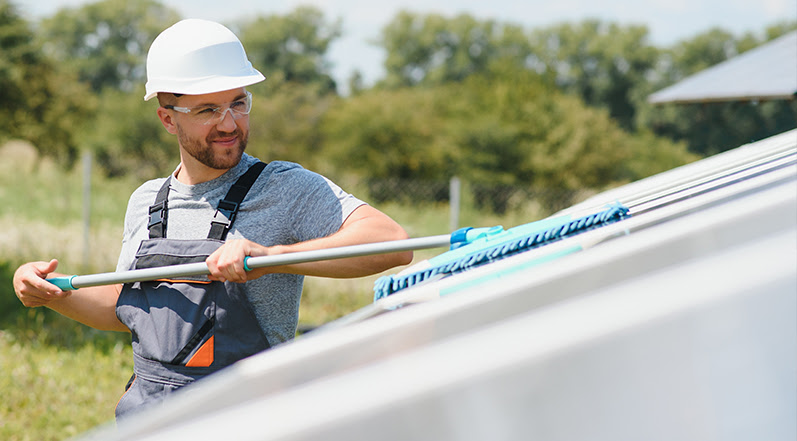
Even if saving on insurance is great, you also have to think about other things - for example, how often you'll have to replace your roof - that can be avoided with regular maintenance. To boil it down, taking care of your roof often keeps it going longer and helps you sidestep the huge cost of replacing the whole thing.
I recommend (to all you homeowners out there) figuring out a regular roof upkeep schedule: plan for regular inspections every year; make sure your gutters don't have any gunk in them and that drain systems are looking good; inspect your house after any wild weather; and deal with problems as soon as you spot them.
So, keeping up with your roof will ensure a sound investment. You'll get multiple benefits like lower insurance premiums and a longer-lasting roof. Also, you keep up on the maintenance consistently and head off potential damage, saving yourself from heartache in the future. Remember the golden rule - prevention saves you from having to find a cure!
Invest In a New Roof for Lower Premiums
Invest in a solid, impressive roof, and you'll see your insurance premiums drop like a stone. You might ask, how does this work? Well, insurance companies love to give out discounts for new installations, especially when you use sturdy materials that can take a beating from the weather. The idea behind this is super simple - a better roof means less chance of damage during storms, so they don't have to pay out on insurance claims as often.
Did you know that a 2019 study by the Insurance Institute for Business & Home Safety found that stronger roofs can stand up to harsh weather better, which ends up in fewer insurance claims? If you're a homeowner with this type of roof, you can get lower insurance rates. And I'm talking about saving money - these stronger roofs also make you feel more safe and more secure.
Let's bring it home to Florida. With our super harsh weather, like hurricanes and the biggest rain storms you've ever seen, it's a real challenge to keep our roofs in one piece. That's why Florida homeowners would really benefit from investing in stronger roofs, which is a smart move for now and the future. This is saving money - when homeowners see their smart decisions pay off in lower premiums, it's a huge relief.
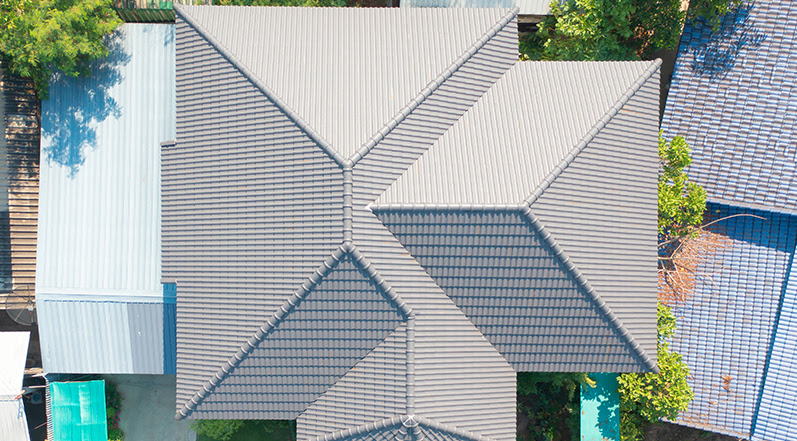
Let's talk about how Florida homeowners can play it smart with their insurance costs. This is in making the right choices when it comes to your roof - picking the right materials and the right level of strength and working with a trustworthy provider like Colony Roofers to make sure the installation goes smoothly.
Right across Georgia, Florida, and Texas, people rely on Colony Roofers for top-of-the-line residential and commercial roofing services. We offer free inspections and a team that knows what they're talking about. The step of installing a super-strong new roof with the help of skilled professionals like us at Colony Roofers is important - it protects your investment and cuts your insurance costs, so it's something you definitely need to think about.
 Call (678) 365-3138
Call (678) 365-3138


